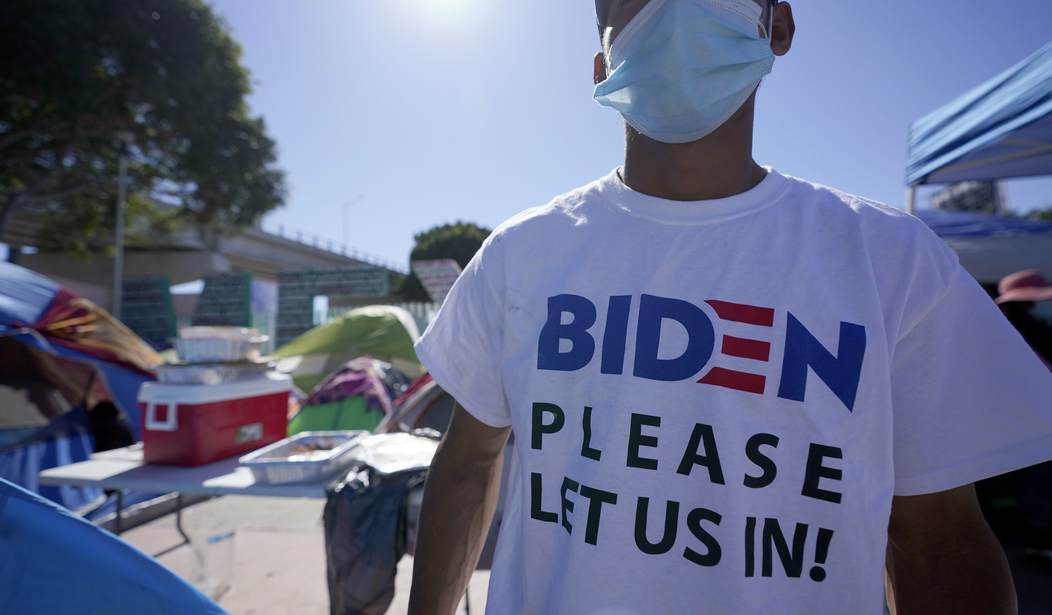Congress may soon attempt to pass the biggest amnesty for illegal immigrants in a generation, even though recent polling overwhelmingly shows that most voters oppose amnesty. If lawmakers defy their constituents and pass the bill anyways, it'll worsen the crisis at the border -- and make it even harder for Americans to find good jobs.
Earlier this year, the White House proposed a sweeping immigration package that would have offered legal status, and eventually citizenship, to over 11 million people who crossed the border illegally or overstayed their visas. That plan would have also greatly expanded the number of legal foreign workers coming to the United States to fill jobs.
The full package hasn't gotten much traction on Capitol Hill, where bills normally need to pass the Senate with considerable bipartisan support. But now, some senators are hoping to include amnesty provisions in a "reconciliation" bill that isn't subject to the filibuster, meaning it could be passed on a party-line, simple-majority vote.
Illegal border crossings are already at their highest level in a generation, due to the White House's rollbacks of certain security measures. The latest available data from Customs and Border Protection show that over 188,000 illegal immigrants were apprehended at the southern border in June 2021, up by a factor of six from 33,000 in June 2020.
Including an amnesty in a reconciliation bill would send a horrible message to tens of millions of people around the world who are considering immigrating illegally. It'd entice them to make the dangerous journey in hopes that they too will gain legal status, either in this amnesty or a similar future one. And it'd further enrich the violent cartels who are already making millions per day from human trafficking at the border.
Congress passed what was supposed to be a "one-and-done" amnesty in 1986, when there were roughly 3 million illegal immigrants in the country. Policymakers enacted another half-dozen smaller amnesties over the subsequent decades.
But the number of illegal immigrants kept rising. Amnesty didn't solve the problem -- it only exacerbated it.
It's truly unbelievable that just as America is coming out of Covid-19, Congress would even consider an amnesty, increasing competition for jobs and hurting Americans of all backgrounds -- whether descended from the Pilgrims who arrived on the Mayflower or naturalized citizens who came here just a few years ago. One recent study by London School of Economics researchers finds that even a 1 percent increase in the share of laborers who are immigrants decreases native-born workers' wages by 0.4-0.6 percent -- and likely reduces the immigrants' wages by a similar amount. Harvard's George Borjas, the nation's most prominent immigration economist, estimates that immigration transfers about $500 billion in wealth from workers to companies each year by depressing wages.
Of course, people don't need PhDs in economics to understand that adding more workers to the labor pool makes it easier for businesses to fill open slots without increasing pay or benefits. It's common sense.
That's why 51 percent of voters oppose offering amnesty to illegal immigrants, according to an early July poll from Rasmussen. Only 44 percent support it. Independents oppose amnesty by a whopping 57-34 margin.
If Congress rams through an amnesty via reconciliation, it'll hurt American workers. And judging by how poorly it polls, amnesty will also hurt the re-election chances of any lawmaker who votes for it.
Mark Thies, Ph.D. is an Engineering Professor at Clemson University whose research is focused on energy and sustainability.
Will Congress Now Try to 'Amnesty' Us?
The opinions expressed by columnists are their own and do not necessarily represent the views of Townhall.com.

Advertisement
Recommended
Trending on Townhall Videos
Advertisement
Advertisement
Advertisement























Join the conversation as a VIP Member